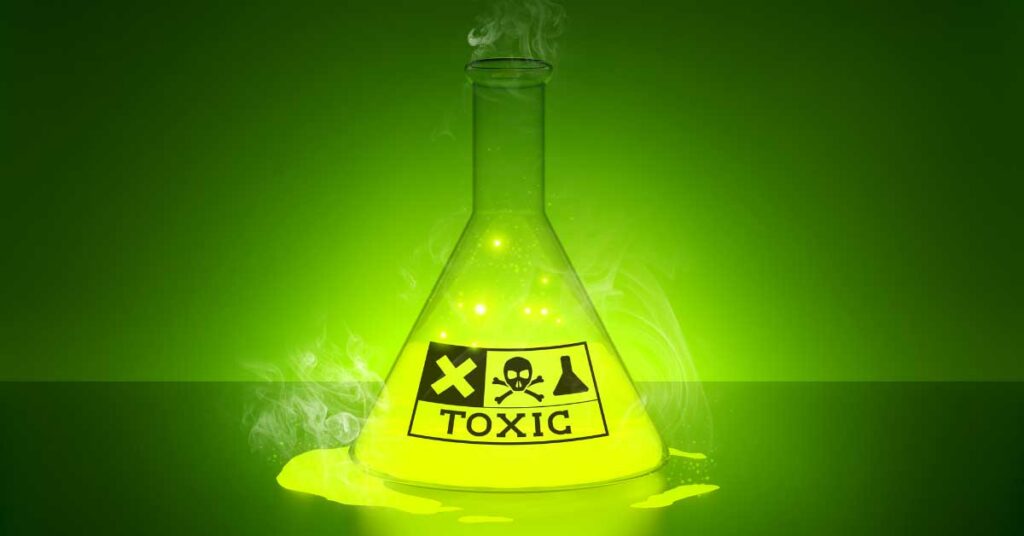The Importance of a Healthy Work Environment
A healthy work environment is crucial for the overall well-being and productivity of employees, and it plays a vital role in combating the negative effects of toxic individuals. In an atmosphere where trust, respect, and open communication are fostered, employees are more likely to be engaged, motivated, and committed to their work.
A positive work culture not only helps neutralize the impact of toxic employees but also discourages such behavior from taking root in the first place. This, in turn, leads to improved job satisfaction, reduced turnover rates, and, ultimately, a more successful business.
The Impact of Toxic Employees
Toxic behavior in the workplace can be a difficult issue to navigate. When an employee is meeting their KPIs, it can be challenging to justify terminating their employment, even if they are a toxic worker and causing harm to the company culture and morale.
However, it is important to remember that various types of toxic employees can have a negative impact that is difficult to quantify, such as drama, negativity, and decreased productivity.
It can be tempting to ignore the red flags and keep a toxic employee especially if they are valuable to the company in terms of revenue or important work. We may tell ourselves that we need them or that we can’t handle the additional workload without them. These are excuses driven by fear and insecurity.
Understanding the Problem to Lear to Deal With Toxic Employees
Ignoring the detrimental effects of toxic employees can result in a myriad of issues, including decreased morale, increased stress levels, and reduced productivity among team members.
Over time, this negativity can spread throughout the workplace like a contagion, damaging the company culture and causing high-performing employees to seek opportunities elsewhere. In extreme cases, toxic behavior can even lead to legal issues, tarnishing the company’s reputation and creating financial liabilities.
The key is to trust your instincts. If you, as a business owner, have a hunch that someone is toxic, chances are that your intuition is correct.
Remember that what you see is often just the tip of the iceberg, and the full extent of their destructive behavior may be hidden from you. Don’t be afraid to make changes for the betterment of your company, even if it may seem daunting at first.

Managing Toxic Employees: It’s Worse Than You Think
People with toxic behavior can be very good at hiding it and making you believe they’re doing a great job. Your team members may be concealing their negative impact and you’ll likely be shocked at what you uncover if you decide to let them go.
The longer you wait to address the problem, the more it will escalate. There’s a chance they’re not actually working as hard as they seem to be.
To get a clearer picture, do some investigation. Check for any fake notes they may have entered into the system, and compare them with phone and email records.
Talk to those who were expected to change their behavior – have they actually adopted the new program? If the person is in accounting, take a closer look at the books – are they accurate? Are the sales figures adding up?

How to Manage Toxic Employees if I Don´t Know If I Have One?
If you aren´t sure if you have toxic employees in your team, here we give you a very easy way to look for toxic traits and persons in your team, especially if you have noticed a decrease in productivity.
Remember, As an entrepreneur, the success of your business heavily relies on the individuals you surround yourself with
Consistent negativity
If an employee is constantly complaining, criticizing, or spreading negativity, it can be detrimental to the morale and motivation of the entire team. Address this behavior by having an open conversation with the individual, discussing their concerns, and finding ways to improve their outlook.
Undermining colleagues
A toxic employee may frequently undermine their coworkers, either subtly or directly. This can lead to a hostile work environment and damage team dynamics. It’s essential to establish a zero-tolerance policy for this behavior, encourage open communication, and foster a supportive culture.
Lack of accountability
Toxic employees often refuse to take responsibility for their actions, blaming others for their mistakes or failures. To tackle this issue, set clear expectations, offer constructive feedback, and ensure that everyone is held accountable for their performance.
Manipulative behavior
Manipulation can take many forms, such as emotional blackmail, deception, or playing the victim. Be aware of these tactics and address them head-on by promoting transparency and trust within your team.
Resistance to change
A toxic employee may exhibit a strong aversion to change, impeding progress and innovation. Encourage adaptability and continuous learning by involving team members in decision-making processes and providing opportunities for personal and professional growth.
Once you’ve identified a toxic employee, taking decisive action is crucial. So what will the next step be? Should you fire your toxic employees?
Should you fire that toxic person?
Well, it´s not that simple; here is a list of what we have learned throughout the years when confronted with a toxic employee.
This will serve as a list of behaviors that you should wight carefully. Is it really worth it to tolerate all that? Or is the problem bigger than the benefits?
- Be aware of what you tolerate. If you’re tired of a person’s behavior, such as crying in your office frequently, it’s time to stop tolerating it.
- Don’t be surprised if the rest of the team is happy when the toxic person leaves, even if they acted like they liked them.
- Be prepared for extra work when you let go of the toxic person, as they may have caused damage that needs fixing.
- Avoid hiring and promoting emotionally immature people to management positions, as their personal issues will only worsen with power.
- Keep an eye out for toxic people, as they may hide their true intentions. Verify their work and set boundaries.
- Consider therapy if you’re tolerating behavior that wouldn’t be accepted elsewhere.
- If your business is struggling, examine if a toxic culture may be the cause.
- Identifying a toxic person can be difficult in a group setting, so look at the strongest personality, even if they don’t seem like the problem. If the group is dysfunctional, you may need to let go of all of them.

I’m Convinced I Need to Terminate a Toxic Employee
Once you´ve gone through the list and made your decision, have a plan in place to handle the responsibilities and workload of a toxic employee to make the process smoother. Preparing ahead of time can reduce the negative impact and help your company be successful in the future.
Toxic employees can cause problems even after they leave, like filing frivolous lawsuits. To protect yourself, keep a record of the Performance Improvement Plan and their progress. Be transparent about the situation with the employee. This will help ensure that there are no surprises when it comes to the final decision to let them go.
How to do it
In our experience, getting rid of toxic people as soon as possible is the best business advice anyone could give you. Getting rid of toxic people quickly is better for business. People who drain you after work, affect your personal life, cause drama and don’t work well with others, and constantly complain instead of doing their job, are not worth your time.
Schedule a private meeting with the employee, during which you calmly and professionally explain the reasons for their termination, citing specific examples from your documentation.
If necessary, try to document instances of the employee’s toxic behavior, ensuring you have a clear record of their actions and any prior attempts to address the issue.
Be empathetic yet firm in your decision, and make sure to follow your company’s established procedures for termination, including any legal or HR requirements.
After the termination, communicate with your team about the situation, emphasizing the importance of maintaining a healthy work environment and your commitment to supporting their well-being.
Create a Positive Business Environment:
It doesn’t move your business forward. If you do not tolerate that at your office, you won’t get it. It is simple. You can always find someone else who can fill that position.
In conclusion, proactively managing toxic employees is an essential aspect of maintaining a positive work culture and driving your business toward success.
There are always talented professionals eager to contribute positively to your organization. By prioritizing the health of your work environment, you will not only improve employee satisfaction and retention but also create a strong foundation for long-term growth and success.
Ready to embrace your uniqueness, develop a resilient mindset, and turn your dreams into reality? Through disciplined execution and relentless, you can do it too! Contact us today

